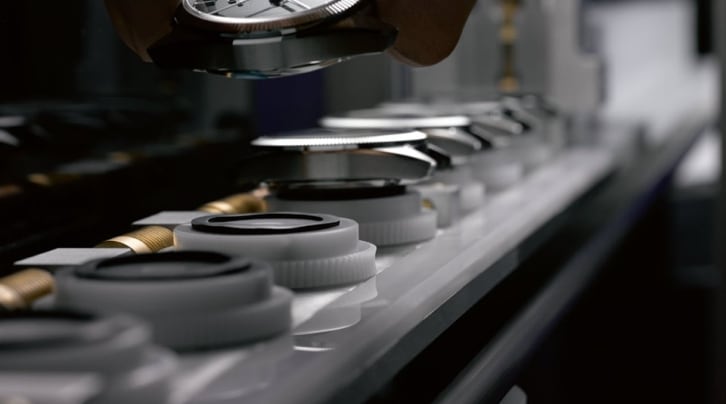For a timepiece, just like any other collectible item, a general principle prevails: what is rare is expensive! The value of a watch can be explained by several factors in addition to the brand name, which itself can obviously be more or less prestigious and of higher or lower quality than others. Primarily, of course, is the nature of the materials used. Stainless steel, titanium, gold, platinum, sapphire crystal or complex and innovative composite materials alone sometimes justify the price of a timepiece. Especially when the piece is set with precious stones. Strictly from a watchmaking point of view, all the complications that add functions to the watch also increase the price. For example, adding a chronograph, minute repeater, grand strike or tourbillon increases the technicality, the complexity of a watch, therefore the time it takes a manufacturer or a watchmaker to assemble the movement.
When watches have several complications, they can reach prices significantly above the average. As a case has more of these complications, it becomes more expensive. Moreover, decoration and finishes can justify increased prices: for the work of decoration of the parts of the movement, for the engraving of the oscillating weight, for skeletonizing the bridges… the type of bezel, bracelet. Very expensive materials or exotic leather can add significant value to a watch. The same happens with certifications, such as COSC for chronometers, or Poinçon de Genève, as well as other labels, which guarantee the very high quality of your movement or certain features of your timepiece. Manufactured watches are especially sought after because the brands produce them based on the vertical integration of the production process, ensuring the integrity of their watches. The expertise of these houses, most often from Switzerland, has made the reputation of Swiss watchmaking. The 'Swiss Made' label, for example, which indicates that a timepiece was manufactured in Switzerland, is a guarantee of quality recognised by industry and by customers worldwide.
It should also be noted that often the value of a watch is down to the nature of the movement itself. Thus, a traditional mechanical movement from a reputable manufacturer will have a higher price than a quartz movement from a lesser-known brand. Another noticeable distinguishing factor in the ranking of timepieces based on their value is the number of pieces produced. The price increases for limited series, numbered or signed. The same happens when it comes to a collector's watch that was worn by a famous person, a royalty or a celebrity. The price depends on the qualities of such famous person and any history associated with it.
Breaking with the codes that usually define the value of watches, some very innovative timepieces, sometimes from newer but highly inventive brands, manage to outsmart the classic price criteria and offer dreamy watches at prices that are unspeakable.
*In watchmaking, a function that provides extra information beyond the hour and minutes is called a complication.



